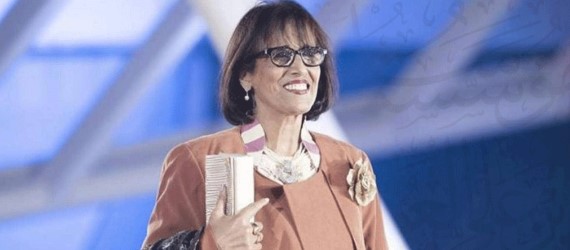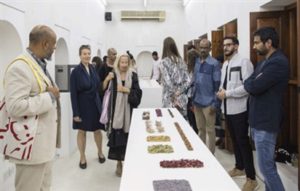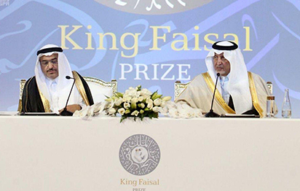Theatre lights in Morocco are dimmed for a pioneer who passed away.
Soraya Gibran, known as one of the first ladies of the Moroccan stage, died on Monday, of cancer. She was 67.
The news was announced by The Moroccan Syndicate of Dramatic Art Professionals, who said, in statement, that Gibran died at Sheikh Khalifa Hospital in the Moroccan city of Casablanca.
“Our union mourns the death of Soraya Gibran,” the syndicate said. “When it comes to the history of Moroccan and Arab theatre, television and cinematic drama, it considers Gibran as one of the leading figures in art and culture in our country and a symbol of the craft of acting for Morocco.”
The news of her death will not only be felt within all levels of the Moroccan entertainment industry, but also within the kingdom’s political establishment.
Gibran was minister of culture from 2007 to 2009, under former prime minister Abbas El Fassi.
That she was hailed as the first actress to take on the position wasn’t greeted with any fanfare by Gibran. It was one of the many glass ceilings she broke through in a career marked as much by acclaim as by grit.
“She was always fighting,” Moroccan singer Jihane Bougrine tells The National. “I can tell you as one of many Moroccan female artists, she has inspired many of us. I remember 10 years ago I attended a masterclass of hers and she told us how she had to fight for everything in her career as a woman – from opportunities to recognition.”
Hard work and service
Born in Casablanca in the lower-class neighbourhood of Dar Al Sultan, Gibran’s viewpoints have been shaped from an early age.
Her father died when she was a child and her mother immediately instilled in her the twin life principles of hard work and service.
In previous interviews, Gibran recalled those keys years as a child, when she would help her mother in her role as a nanny at a local charity.
An extrovert growing up, Gibran began performing in amateur productions at the age of 10. It was all for a bit of fun, though, as her heart was set on following in her mother’s footsteps and embarking on a career in social work.
But her friends and teachers thought she had a different calling. Through their encouragement, Gibran enrolled into Rabat’s prestigious International Theatre Institute in 1969 as a 17-year-old.
Gibran used the skills taught at the academy to build a career on stage and screen mostly with everyday characters who could have come straight from the streets of Dar Al Sultan.
From important early roles in plays Abu Hayyan Al-Tawhidi and Diwan Abd al-Rahman Al-Majdoub to 2001 film Jannat Al Fuqara (Paradise of the Poor), the Moroccan press describe her choice of characters as “the angry woman”. It’s not as offensive as it seems. Gibran was often livid as she pointed out the social injustices in a country she felt was not living up to its ideals.
A star from the people
As well as social commentary, Gibran used her work to encourage more Moroccan women to enter the male-dominated performance industry.
It was as a nine-year-old that Bougrine first saw Gibran take to the stage, in Rabat.
“That was my first time in the theatre,” she recalls. “I went with my parents. I don’t remember much about the show, but I was thinking about how strong she was on stage. She was the only one up there and there were all these men around in the background.”
That performance helped spark an appreciation of art and performance within Bougrine. Once it bloomed into a passion, she remembers returning to the theatre over the years to see Gibran in full flight as she performed classic works from Shakespeare and Moliere.
“It was really beautiful and you know why? Because she did it all in the Moroccan dialect,” Bougrine says. “Normally, we would see these productions in classical Arabic, but Gibran did it in her own way. She wanted everyone, from all parts of society, to understand it because she always viewed herself as part of the people.”
The beauty within the fight
With such zeal, it wasn’t too surprising that Gibran was invited to become Morocco’s minister of culture in 2007. But the role ended prematurely because of her ill health. Despite the short tenure, Gibran managed to push through important measures, such as expanding social security and health coverage for those working within the arts.
Although cancer and associated ailments forced Gibran out of the limelight for the last decade, she did make the occasional public appearance. In 2015 she gave Egyptian screen legend Adel Imam a lifetime achievement award at the Marrakesh International Film Festival. Gibran would also hold low-key events throughout Morocco during which she would share career tips with young creatives.
Bougrine, once again thinks about that 2010 masterclass with Gibran. She recalls meeting her after the event to ask Gibran if she holds any regrets about a career full of “fights and challenges.”
Her answer to the burgeoning singer was emphatic.
“She told me she loved the fight,” Bougrine says. “It gave her a lot of energy and meaning to the work she did. If she had to do it again, she said, she would go there and fight again.”
Gibran may have lost her fight with cancer this week, but judging from the generations of Moroccans she inspired – within and outside the entertainment industry – her time with us has been nothing short of victorious.
www.thenational.ae




